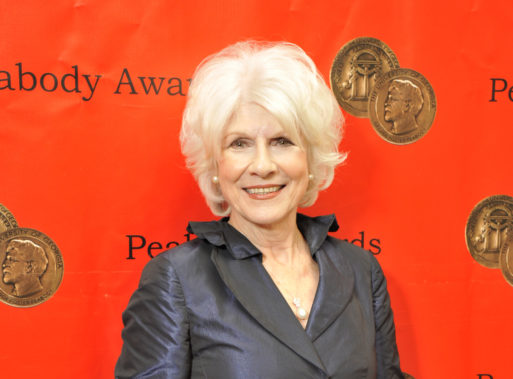Since Diane Rehm’s husband suffered an agonizingly drawn-out death in 2014, she has continued to be an outspoken proponent of an individual’s right to choose when and how to exit this life. Just two weeks ago, the popular NPR Washington D.C. host, now retired, testified in favor of an assisted death bill in Maryland.

Award-winning radio host Diane Rehm still advocates for physician-assisted death in her retirement
Credit: Flickr
Her Husband’s Dying Wish
SevenPonds introduced its readers to Diane Rehm when she published “On My Own” in 2016. The memoir tells her story as a caregiver legislatively forbidden to follow through with her husband’s last wish: a physician-assisted death in the last months of his nine-year battle with Parkinson’s disease. By that time, John Rehm could no longer use his hands, walk or do anything for himself.
Even though both Diane and John agreed to what they considered the more compassionate option, a physician-assisted death was against the law in their home state of Maryland. Instead, John was compelled to make the legal choice that would hasten his death — to refuse all food, fluids and medication. It took him well over a week to die a death that, under a doctor’s supervision, would have taken minutes, inducing him to simply fall asleep.
The Agony of a Lawful Death
Diane testified that since John’s wish for a physician-assisted death was illegal in Maryland, she had no choice but to witness the effects of his legal option — his self-motivated starvation. “I sat by my husband’s side day and night for 10 days as he slowly died,” Rehm said. “You could see the agony expressed in his face, though he made no outcry and no request for water.” She went on to question,” … why did our laws infringe on an individual’s decision to die peacefully when dying was inevitable within a few months?”
On the day of Diane’s testimony, supporters and opponents of the doctor-assisted death bill spilled outside the crowded hearing room into the hallways of Maryland’s legislative office, manifesting the complications of the ongoing debate about aid in dying. While Diane and others consider physician-assisted death a compassionate option by which the terminally ill may decide when to end their lives, opponents argue the law could be misused. They believe that elderly people could choose to end their lives because they feel they have become a burden and doctors’ prognoses of death can be wrong.

Credit: alfred a. knope
Diane Rehm and her husband John on one of their happy days, their 25th wedding anniversary.
The bill to allow physician-assisted death has come up for consideration in Maryland for years, but has always stalled. This current version would allow adults to obtain a prescription for life-ending drugs if a doctor finds they have six months or less to live. It also requires that the physician certify the person has the capacity to make the decision, and the prescription can only be self-administered by the individual. Additional safeguards meant to address concerns by opponents include a stipulation that a person would have to make three requests for a life-ending prescription from a doctor, and at least one of those must be made with the individual alone with his or her doctor.
Will This Year Be Different?
Maryland Governor Larry Hogan, a Republican, said he would take a close look at the bill if the Democrat-controlled General Assembly passes the measure. “I’ll be honest with you, it’s one that I really wrestle with from a personal basis. I understand the passion and concerns on both sides of the issue,” he told reporters.
As of the start of this year, laws allowing physician-assisted death exist in six U.S. states and the District of Columbia. Montana made it an option via a Supreme Court decision in 2009.

 Retired NPR Host Diane Rehm Continues Her Fight for Physician-Assisted Death
Retired NPR Host Diane Rehm Continues Her Fight for Physician-Assisted Death


 How Dare You Die Now!
How Dare You Die Now!

 “Help Me, Helen”
“Help Me, Helen”














